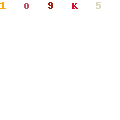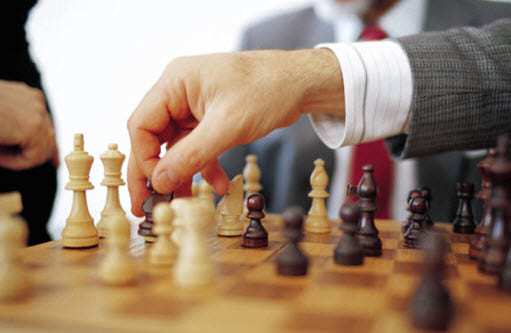Successful technologies, over the years, have ultimately tended to simplify things for the end user. Companies that master convenience are amply rewarded, time and time again. There's one particular area in mobile technology that offers to make our lives even easier. So just what is this industry, and what companies are positioned to reel in big profits when it takes off?
 Checking out, simplifiedThe groundbreaking new technology -- expected to become a $600 billion area by 2016 -- is the mobile payments industry. Not surprisingly, Google(NASDAQ: GOOG ) is one of its pioneers; its Google Wallet product it one of the earliest on the scene, and it has the ambitious aim of making the traditional wallet obsolete. By connecting your credit card accounts to your Google Wallet application, you'll be able to go to any merchant equipped with near-field communication technology, confirm your payment on your phone, and -- voila! -- walk on out of the store with your purchase, legally. No clunky credit cards, no paper receipts, no problem. It almost sounds too good to be true.
Checking out, simplifiedThe groundbreaking new technology -- expected to become a $600 billion area by 2016 -- is the mobile payments industry. Not surprisingly, Google(NASDAQ: GOOG ) is one of its pioneers; its Google Wallet product it one of the earliest on the scene, and it has the ambitious aim of making the traditional wallet obsolete. By connecting your credit card accounts to your Google Wallet application, you'll be able to go to any merchant equipped with near-field communication technology, confirm your payment on your phone, and -- voila! -- walk on out of the store with your purchase, legally. No clunky credit cards, no paper receipts, no problem. It almost sounds too good to be true.
 To be fair, while the iPhone 5 doesn't have NFC technology, it does have Passbook, which allows users to store things like loyalty cards, gift cards, boarding passes and game tickets in their phones. Apple VP Phil Shiller went so far as to say the company found NFC essentially an unnecessary compatibility at this stage, saying "Passbook does the kinds of things customers need today." He could be right. Time will tell.
To be fair, while the iPhone 5 doesn't have NFC technology, it does have Passbook, which allows users to store things like loyalty cards, gift cards, boarding passes and game tickets in their phones. Apple VP Phil Shiller went so far as to say the company found NFC essentially an unnecessary compatibility at this stage, saying "Passbook does the kinds of things customers need today." He could be right. Time will tell.

 Checking out, simplifiedThe groundbreaking new technology -- expected to become a $600 billion area by 2016 -- is the mobile payments industry. Not surprisingly, Google(NASDAQ: GOOG ) is one of its pioneers; its Google Wallet product it one of the earliest on the scene, and it has the ambitious aim of making the traditional wallet obsolete. By connecting your credit card accounts to your Google Wallet application, you'll be able to go to any merchant equipped with near-field communication technology, confirm your payment on your phone, and -- voila! -- walk on out of the store with your purchase, legally. No clunky credit cards, no paper receipts, no problem. It almost sounds too good to be true.
Checking out, simplifiedThe groundbreaking new technology -- expected to become a $600 billion area by 2016 -- is the mobile payments industry. Not surprisingly, Google(NASDAQ: GOOG ) is one of its pioneers; its Google Wallet product it one of the earliest on the scene, and it has the ambitious aim of making the traditional wallet obsolete. By connecting your credit card accounts to your Google Wallet application, you'll be able to go to any merchant equipped with near-field communication technology, confirm your payment on your phone, and -- voila! -- walk on out of the store with your purchase, legally. No clunky credit cards, no paper receipts, no problem. It almost sounds too good to be true.
While Google has gone after mobile payments in a completely new way, it hasn't yet really embraced the swipe-your-physical-credit card space quite like others have. Frankly, this may be another instance (self-driven cars, anyone?) of Google getting a bit ahead of itself. After all, we still live in a plastic-loving society; perhaps that's why mobile payment systems that still embrace physical credit cards have done quite well in their own right.
A standout in this category is Square, the private San Francisco-based company co-founded by Twitter's Jack Dorsey. The company's product, a square-shaped credit card reader, connects to the headphone jack of any mobile device, and enables mobile users to quickly swipe and sign for purchases on their touchscreens. It's caught on in a hurry: the company is on track for $8 billion in payment volumes this year, more than four times the pace of last year's transactions
eBay's (NASDAQ: EBAY ) PayPal Here is very similar. In fact, it's an unapologetic emulation of Square. There are only two notable differences between PayPal Here and Square: PayPal Here's mobile credit card swiping device is shaped like a triangle rather than a square, and it charges 2.7% per transaction vs. the 2.75% that Square charges.
eBay's foray into this area makes sense, and honestly it has a major leg up on current and future competitors by way of its well-established reputation and years of experience in the payment-processing business. There's no doubt PayPal Here is a force to be reckoned with.
A different approachA discussion of anything mobile in today's environment wouldn't be complete without mentioning Apple (NASDAQ: AAPL ) . That said, the company has entirely neglected making its own payment innovations using near-field communications, or NFC. Some thought an NFC chip would finally be included in the iPhone 5. Alas, the iPhone 5 was released NFC-less, and that may end up being a costly mistake for Apple down the line. When you compound that issue with the fact that Apple's iOS mobile software is rapidly losing ground to Google's Android operating system -- Android devices accounted for 75% of smartphones shipped in the third quarter of 2012 -- Apple could be missing out big time on a multibillion dollar business.
 To be fair, while the iPhone 5 doesn't have NFC technology, it does have Passbook, which allows users to store things like loyalty cards, gift cards, boarding passes and game tickets in their phones. Apple VP Phil Shiller went so far as to say the company found NFC essentially an unnecessary compatibility at this stage, saying "Passbook does the kinds of things customers need today." He could be right. Time will tell.
To be fair, while the iPhone 5 doesn't have NFC technology, it does have Passbook, which allows users to store things like loyalty cards, gift cards, boarding passes and game tickets in their phones. Apple VP Phil Shiller went so far as to say the company found NFC essentially an unnecessary compatibility at this stage, saying "Passbook does the kinds of things customers need today." He could be right. Time will tell.
But who actually makes this NFC technology with so much promise? One of the premier NFC chip producers right now is NXP Semiconductors (NASDAQ: NXPI ) , which supplies NFC technology for Nokia (NYSE: NOK ) phones as well as Google Wallet-enabled devices such as Samsung's Galaxy S III. If Nokia teams with NXP in future products like its line of Windows phones, NXP could not only stand to benefit from the new business, but could gain exposure to loyal Windows customers in what could prove to be a long and lucrative relationship
While Google only offers a limited assortment of NFC-enabled devices and its Wallet platform isn't quite where it could be, I'm hesitant to scold the company for being ahead of its time. Like with its self-driven cars, the fact that Google is embracing a breakthrough technology like NFC when the rest of the tech world isn't can look a bit risky. But if and when consumers start to demand NFC-capable devices, Google and its Google Wallet will be light-years ahead of competition.
There is absolutely no argument that Apple is at the center of technology's largest revolution ever, and that longtime shareholders have been handsomely rewarded with over 1,000% gains. However, there is a debate raging as to whether Apple remains a buy. The Motley Fool's senior technology analyst and managing bureau chief, Eric Bleeker, is prepared to fill you in on both reasons to buy and reasons to sell Apple, and what opportunities are left for the company (and more importantly, your portfolio) going forward. To get instant access to his latest thinking on Apple, simply click here now.

















